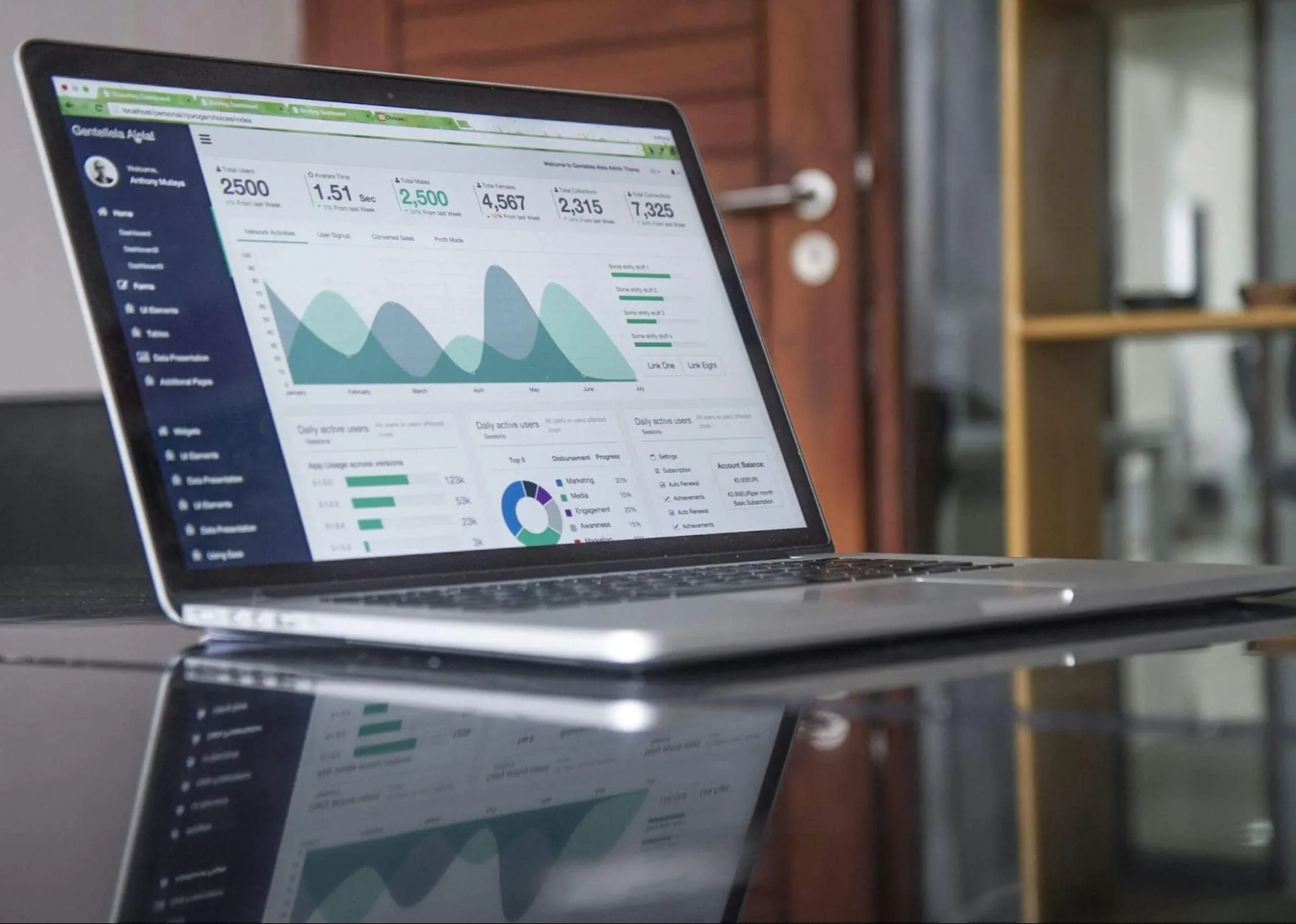Have you ever wondered do outbound links help SEO? The short answer is yes! When used the right way, outbound links can be a key part of your strategy.
If you’re not familiar with the term, outbound links are links that connect your site to another website. For example, when you write something like, “A recent study from 2023 shows that…” and add a link to the study, that’s an outbound link—simple as that.
By linking to reputable external sites, you’re not just giving your readers extra valuable information—you’re also building trust in your own content.
But here’s the catch: it’s all about using them wisely. Outbound links for SEO can make a big difference when placed strategically, and we focus on that at LinkGraph through our white-label link-building services.
Are you curious to learn more about optimizing outbound links and improving your SEO ranking? Keep reading to discover how this simple tactic can make a real impact!
What Are Outbound Links in SEO?
Let’s start by the beginning: outbound links are external links that take a user from one website to another. They’re a simple but powerful tool in search engine optimization because 1) they connect your content with authoritative, external resources, and 2) they also add significant value to the reader’s experience.
Understanding the Role of Outbound Links in SEO
When you create content, it’s essential to think about the user first. Google’s focus on E-E-A-T (Experience, Expertise, Authoritativeness, and Trustworthiness) and the helpful content update—especially after the latest Google Core Update—reinforce this. Writing for your readers, not just for search engines, is key.
Think of it this way: outbound links to reliable, authoritative sources help your readers trust the information you’re sharing.
For example, which seems more credible to you: a vague statement like “studies say…” with no link or source, or something more specific, like “a recent study from Harvard University in 2022 found…” with an outbound link directly to that study? The latter is more trustworthy because it allows readers to verify the claim themselves.
So when done right, outbound links in SEO improve not only the user experience by offering additional value but also the overall credibility of your site. This can positively influence how search engines view your content, helping boost your authority and visibility in search results.

Outbound Links vs. Inbound Links vs. Internal Links: What’s the Difference?
SEO has many terms, we know. And that’s a great question! Let’s break down some definitions to make things clear.
- Outbound Links: These are links from your website to other external websites. As we’ve already discussed, they’re valuable for connecting your content to high-quality, authoritative sources helping search engines understand your site’s relevance and trustworthiness.
- Inbound Links (also known as backlinks): These are links from external websites back to your site. Inbound links are a key ranking factor in SEO because they act as “votes of confidence” from other sites, showing search engines that your website is valuable and credible.
- Internal Links: These are links that point from one page on your website to another page on the same site. Internal linking is important for guiding users through your content and improving your site’s structure, which helps search engines crawl and index your pages effectively.
How Exactly Outbound Links Contribute to a Site’s Authority?
When strategically placed, outbound links provide your users with additional valuable information that helps them understand a subject more thoroughly.
By linking to authoritative, credible sources, you are offering your audience a chance to explore related topics in greater detail, enhancing their experience on your website.
This also signals to search engines that your content is connected to reliable sources, which strengthens your own authority.
For example, if you run a digital marketing blog and include a link to a trusted source like Google’s official blog or a leading SEO expert, you’re helping your readers find more information on a topic while showing search engines that your content is part of a credible network.
While it’s not necessary for the linked site to return the favor with a backlink, the simple act of linking to authoritative sources as part of your marketing strategy shows search engines that you’re committed to providing high-quality information for your target audience.
It’s a win-win for your site’s authority and visibility!

How Do Outbound Links Affect PageRank?
In short, they can play a significant role in signaling confidence and authority to search engines. PageRank is part of Google’s algorithm that evaluates the quality and importance of web pages based on how many credible pages on the internet link back to them. It treats links as votes of confidence.
By including outbound links to authoritative and relevant information, you’re essentially telling Google that your site is a valuable resource in your niche. This can help boost your PageRank and, ultimately, improve your position in search results.
However, overloading your page with outbound links to less credible sources may have the opposite effect, diluting your content’s value. Striking the right balance is key to maintaining strong PageRank and visibility on search engines.
Can Outbound Links Harm SEO?
Yes, outbound links can negatively impact your SEO if used incorrectly or carelessly. Here’s how:
Link Farms
If you use the link farm technique—excessively linking to random external sites just to manipulate rankings—search engines will likely penalize you.
This black-hat SEO tactic signals that you’re trying to game the system rather than offer valuable content to users, which can damage your site’s reputation.
Bad Neighborhoods
If you link to low-quality or spammy websites (what’s often called “bad neighborhoods”), you risk associating your site with unreliable or harmful content. Search engines may view this as a sign that your site lacks authority, causing a potential drop in your rankings.
Too Many Outbound Links
If your website is overloaded with outbound links, especially to irrelevant or unrelated content, it can overwhelm users and search engines alike. This reduces the overall value of your site and could make it appear less focused, weakening your SEO efforts.
Non-Relevant Links
Linking to off-topic or non-relevant content can confuse both search engines and users. If your links don’t align with the subject matter of your page, search engines might consider your content low-quality, which could harm your ranking.
While outbound links are important, you should not add them just because you can.
Always ask yourself: Are these links relevant to the context? Will they add valuable information for the reader? If so, go ahead!
But if you’re only adding a link because it’s from a reliable source and does not add value to your content, it’s better to skip it. Simply inserting a link won’t work miracles for your SEO!
Liking our content so far? We think you’ll love diving deeper into the world of link-building! Check out our free webinar, Mastering Link Building: Exploring Strategies, Google Patents, and Using HARO. It’s packed with actionable insights to take your SEO to the next level!
Outbound Links in SEO: 5 Best Practices
As you can see, outbound links are powerful tools in your SEO strategy. When done right, they help build your site’s credibility and user experience.
Let’s explore some best practices to follow:

1. Ensure Relevance and Context in Link Placement
So, you know why outbound links matter in SEO. But how exactly should you go about adding them?
Each hyperlink should be placed in a way that makes sense to the reader, naturally flowing with the surrounding content.
Professional SEO strategists at LinkGraph, through their SearchAtlas SEO tool, embed outbound links that resonate with the content’s core message, thereby enhancing the overall value proposition offered to the user while concurrently signaling content validity to search engines.
2. Use the Correct Anchor Text for Outbound Links
The anchor text—the clickable text of your hyperlink—plays a big role in this. When used correctly, it tells search engines (and users) what the linked page is about and improves the relevance of your content. Let’s look at a quick example.
- Good example: If you’re linking to a guide about “keyword research strategies,” use anchor text like “effective keyword research techniques” rather than something vague like “click here.”
- Bad example: Avoid generic phrases like “this article” or “click here,” which provide no context to the user or search engines.
3. Select Quality Destinations for Your Outbound Links
You got it: we’re not just talking about any random link, but high-quality links that can truly boost your site’s credibility and SEO. So, how do you choose the best ones?
Here are some tips for selecting trustworthy destinations for your outbound links:
Authority Sites
Link to reputable sites with strong domain authority, such as government (.gov) or educational (.edu) websites, or research from trusted sources like government agencies (e.g., DMV for traffic rules, licensing, etc.), universities and other recognized institutions.
For environmental topics, for example, the Environmental Protection Agency (EPA) (https://www.epa.gov/) provides reliable information on environmental regulations and public health. There are many other trustworthy sources, but you get the idea!
This shows your readers—and search engines—that your content is reliable and part of a high-quality ecosystem.
Official Sources
Always consider linking to the official organization responsible for the topic you’re discussing. For healthcare topics, you can link to the CDC or NIH websites. The EPA is an excellent choice for environmental issues. Linking to governmental bodies when discussing statistics or laws ensures your site is providing trustworthy information, and so on.
Niche Experts
For industry-specific topics, reference experts in the field. If you’re writing about technology, a good one is The Verge (https://www.theverge.com). For SEO-related topics, Search Engine Journal (https://www.searchenginejournal.com) is a top resource. Again, we have a lot of really good options that exhibit clear expertise out there that you can link to.
Pro Tip: Choosing domains with strong authority and credibility is key to boosting your website’s performance. While some sites are trusted and highly authoritative, plenty of other websites are out there, and sometimes, it’s hard to be sure if they’re quality links.
That’s why, to make the best choice, you can use a tool like LinkGraph’s SearchAtlas SEO, which helps carefully vet potential outbound link destinations. By linking to trustworthy sites with high domain authority, you strengthen your site’s reputation and improve its rankings in search engine results.
4. Use Nofollow Tags to Control Link Juice
In SEO, nofollow tags are a key tool for controlling how much PageRank (or “link juice”) flows to external links. When you apply a nofollow tag to a hyperlink, it tells search engines not to pass any ranking influence to the linked site, helping you preserve your own site’s SEO strength.
Here’s how you can use nofollow tags effectively:
- Apply nofollow tags on outbound links to manage how PageRank flows from your site.
- Use nofollow tags for external links that don’t provide reciprocal value or authority to your website.
- Add nofollow to user-generated content (UGC) where the quality or relevance of the links can’t be guaranteed.
This strategy ensures you’re focusing your site’s SEO power on the most valuable and trustworthy links.
5. Monitor and Update Outbound Links to Retain SEO Value
Regularly monitoring and updating outbound links is key to maintaining your site’s SEO performance. Broken or outdated links can weaken your website’s authority and harm the user experience.
Here’s how to manage outbound link updates:
Check Outbound Links Regularly
Make sure they lead to relevant, active sites. Focus on select pages, especially the ones most important for your business. Think about the 5 most important pages or keywords for your business, and make sure those outbound links are up-to-date and functional.
Replace Broken or Outdated Links
This helps maintain smooth access and protects your site’s SEO value. For example, if you’re referencing a study from 2016, it might be a bit outdated in 2024, right? Finding a more current source helps keep your content fresh and reliable for readers and Search Engines.
Review Links Periodically
Align your content with trusted, up-to-date sources. Pro tip: Make space in your calendar at the beginning of each year to review your most important pages from the previous year. Check whether the outbound links are still relevant, functional, or need updates.
For example, ensure that 2024 trends in a Valentine’s Day article are updated for 2025, along with any related outbound links.
The SEO experts here at LinkGraph implement periodic revisions of outbound links to enrich both user experience and search engine trust, acknowledging the dynamic nature of web content and its influence on a website’s ranking trajectory.

How Can You Measure the Impact of Outbound Links?
Now that you’ve put in the hard work of selecting quality outbound links for SEO, using the correct anchor text, and ensuring your links are reputable, updated, and relevant—the next step is to measure the effectiveness of all that effort. After all, you’re not doing this for nothing!
Here are some tips on how to measure and track the performance of your outbound linking strategy:
Use Analytics to Track Link Performance
To gauge how well your outbound links are performing, use analytics tools. You want to track metrics like referral traffic, which shows how many users are coming to your site through the outbound links. This provides direct insight into how much value those links are adding in terms of user engagement.
Monitor User Behavior Post-Click
Once someone clicks on an outbound link, what happens next? Do they stay on your site or immediately bounce back?
Pay attention to bounce rates and click-through rates to gauge the engagement of your content. If outbound links drive users away without bringing them back, you might need to reevaluate their placement or relevance.
Pro Tip: Avoid using an outbound link as the first link in your article, study, or website. Always opt for an internal link first to keep the reader engaged and interacting with your website.
Avoid placing links in the introduction, as this can drive people away from your page and increase your bounce rate.
Review Domain Authority and Link Quality
Check if your outbound links are pointing to high-quality, authoritative sources. Tools like SearchAtlas can help you monitor the domain authority of the linked sites, ensuring you’re connecting your content with reputable resources. Links to lower-quality sites can harm your credibility, so stay on top of this.
Adjust Based on Data
Data-driven decisions are key. After collecting all the metrics, analyze which outbound links are contributing to SEO improvements and which ones aren’t performing as expected.
Maybe some links need updating, or others should be removed entirely. Adjust your strategy as needed to optimize both user experience and search engine rankings.
Pro tip: keep in mind that SEO is multifaceted, and while outbound links are one part of the equation, they won’t single-handedly drive ranking improvements (we wish it were that easy!)
You should expect to see better SERP standings, improved engagement rates, and stronger authority alongside other SEO strategies like optimizing on-page content, improving site speed, and earning quality backlinks.
If you’re not seeing the expected results, it’s worth reassessing your overall strategy and testing new approaches.
Outbound Links Help SEO
Outbound links might not always get the spotlight, but they play a big role in your website’s SEO success.
By linking to credible and authoritative sources, you’re not just boosting your content’s value but also sending a clear signal to search engines that your site is part of a trusted network. This can lead to improved rankings on the search engine results page (SERP).
Of course, it’s all about balance. High-quality outbound links improve user experience and show the depth of your research, but you also want to avoid bad links that could harm your authority. Using the right anchor text and the nofollow attribute when needed can make a big difference, too.
Remember, regularly reviewing and updating your outbound links is key. By tracking their performance with analytics tools and refining your strategy, you can make sure each link supports your SEO goals and keeps your site solid in the ever-changing search landscape!
Want more tips, strategies, and expert insights to boost your SEO game? Follow LinkGraph on social media. Join us on Facebook, Instagram, LinkedIn, Twitter, and YouTube!
